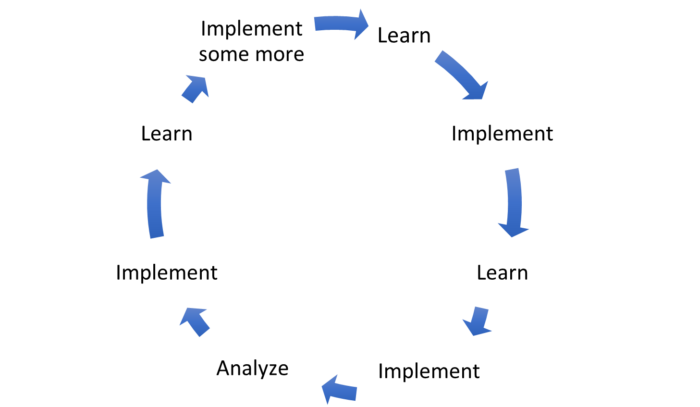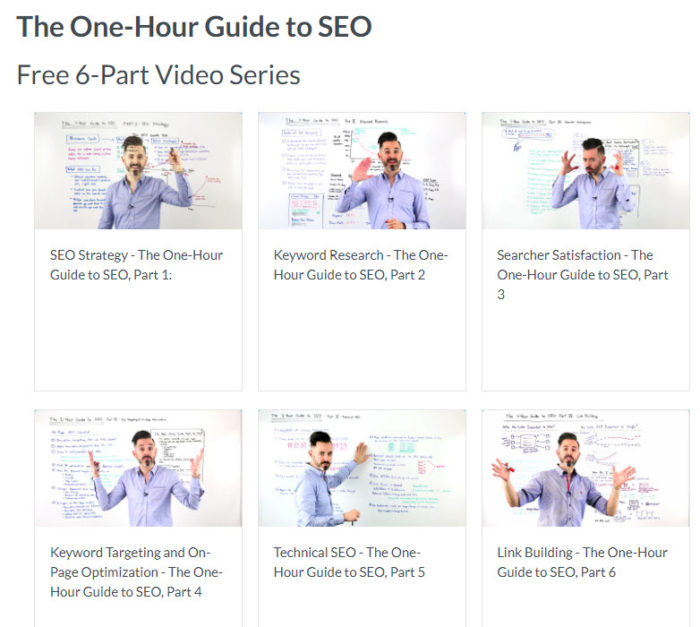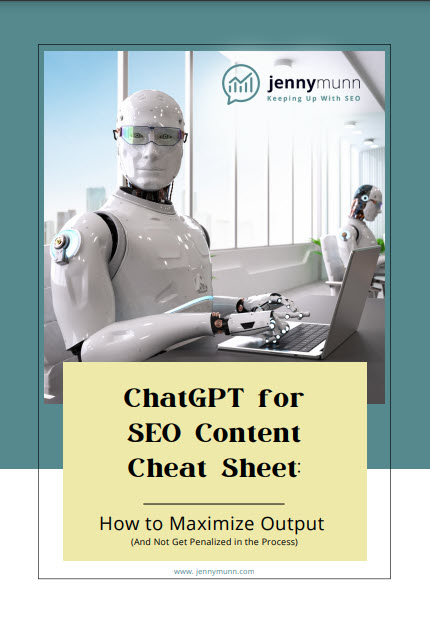SEO can be so complicated. But not if you know where to start. And if you understand you have to jump in and start with your SEO foundation before you see the full picture.
This is a 3-part Beginner SEO series – did you catch the other articles in this series?
- Part 1 – SEO Fundamentals Overview
- Part 2 – What Is An SEO Foundation (article below)
- Part 3 – SEO Success Stories of Sites Newer to SEO
TLDR: Keyword targeting + on-page optimization is where to start with SEO. This is your foundational SEO.
Here is the right way to do SEO: Learn -> implement -> learn -> implement -> analyze -> refine -> implement -> learn.

So, let’s start where I left off with Part 1 of this “SEO Fundamentals” series: SEO best practices boil down to things you do in 3 areas:
- On your site
- On your individual pages the bulk of your SEO foundation
- And away from your site
What is Foundational SEO?
Your SEO foundation is what you have when your strategically selected keywords are applied to your website via on-page optimization.
I tend to throw around the word “foundational SEO” quite a bit. Because it’s the first set of activities you do when undertaking an SEO effort.
3 Steps to Implementing Your SEO Foundation
To apply Foundational SEO, Step 1 of your SEO strategy, here are the steps:
- Keyword Strategy, Research, and Selection
- URL Mapping/Keyword Targeting
- On-Page Optimization
On-page optimization is what I call the “meat” of your SEO as it’s where implementation happens. You create a plan to optimize multiple pages for priority keywords, as opposed to optimizing a page here and there randomly, to get traction. This usually entails a combination of creating new pages and optimizing existing pages.
On-page is one of the unique, universal SEO factors that must be done early in an SEO initiative, no matter your industry: local, ecommerce, B2B, legal, nonprofit, enterprise, etc.
Keyword Strategy, Research, and Selection – Prep Work
Keyword strategy boils down to sound marketing principles:
- Put yourself in your target prospect’s shoes.
- Understand the language they’re using and what they’re trying to accomplish by turning to Google.
- Understand how they’re trying to inform themselves around a question or problem they have, aligned with what your products, services, and expertise solve.
URL Mapping/Keyword Targeting – Prep Work
Three SEO fundamentals need to be understood around the concept of URL mapping:
- Visitors are supposed to land on internal pages on your website.
- Every page on your site should be targeted to a different keyword.
- You can only choose 1 primary keyword per page.
On-Page Optimization – Implementation

On-Page optimization is actually, I think, THE most straightforward part of SEO. Work in your keyword into the most important places and apply the SEO layer. If you’ve ever wanted an SEO checklist, this is the part of SEO where that would apply.
My best resource for quickly understanding your SEO Foundation is Moz’s 1-hour Guide to SEO. Start with these videos:
- SEO Strategy
- Keyword Research
- Searcher Satisfaction
- Keyword Targeting and On-Page Optimization
Where Does an SEO Audit Come In? Shouldn’t That Come First?
In an ideal world, yes. A full SEO audit will give you a complete picture of every area that will matter to SEO and help you prioritize. But when I started undertaking SEO, I certainly didn’t do an SEO audit. I wouldn’t even have had the first clue how to do that!
I taught myself SEO by doing my best to select keywords I thought were the most relevant fit (and a match to the page), and then worked those respective keywords into my pages. And then kept learning and refining.
As an SEO professional, sure, I always get started by doing my SEO due diligence. Five years ago, I would have said I wouldn’t even touch an SEO project without a full audit, which takes 3-4 weeks.
Nowadays, I am more of the MVP (minimum viable product) approach:
- Smart prep work: keyword strategy, research, and selection
- Followed by implementation: on-page optimization
What Foundational SEO Tools Do You Need?
You don’t have to get fancy when you’re just starting.
You do need a keyword research tool that shows you search volume and level of keyword competition.
And following closely, if you don’t already have it, you will need both Google Analytics and Google Search Console.
Final Caveat
I’m not saying the other SEO pieces aren’t necessary: backlinks and technical SEO, for example. But I am saying those are items you can (and should) tackle once you know what you’re working towards and how Google responds to what you’ve put out there.
You’re not going to NOT be able to get away without addressing site speed, site architecture, mobile…but do those have to be the FIRST thing you manage? Thankfully, in most instances, no.
Tackle your SEO foundation, and then keep picking up the rest of what you’ll need for SEO as you go along.
Jenny Munn
Latest posts by Jenny Munn (see all)
- Four 2024 SEO Planning Tips for World Domination - November 16, 2023
- SEO Planning Tip: Why You Need a CYA Clause - November 3, 2023
- How Long Does SEO Take to Show Results? (Updated for 2023) - August 9, 2023


